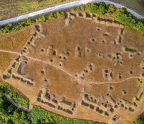Frittering away resources


Of course it is very laudable to encourage people to reduce or eliminate car journeys through providing incentives and infrastructure for cycling and e-cycling (“On your bike”, June 18). However, in our biggest city, cycling, whether power-assisted or not, will never be a viable solution for the majority of commuters.
Most Aucklanders live in suburbs that are at least 15-20km from the CBD. Some are much further away. Many cannot live closer because of the expense and difficulty finding family-size homes. Many do not have good enough health to cycle that far. Many prefer to stay dry and comfortable on their commute, and arrive at work ready to go instead of needing to shower, and so on.
The answer is not the car, nor e-bikes: it is fast, efficient public transport – a network that covers all Auckland suburbs and provides connections to the CBD and local shopping centres and hospitals. I worry that this focus on cycling infrastructure is frittering away resources for a mode of transport that is only ever going to be a good option for perhaps 20% of people.
Messing about with some planters and coloured lanes on roads is
You’re reading a preview, subscribe to read more.
Start your free 30 days





